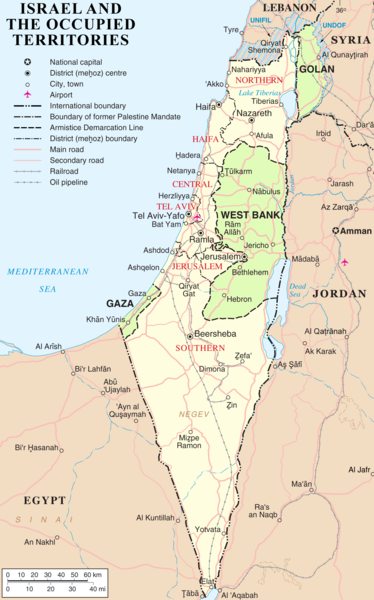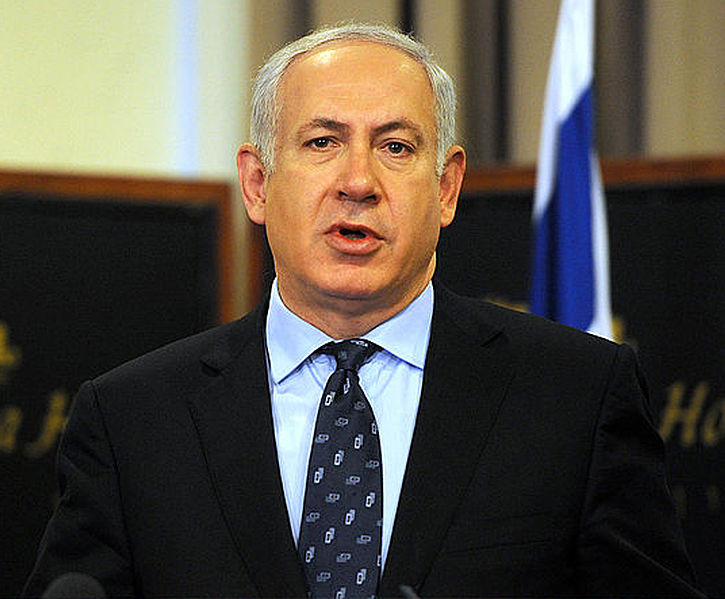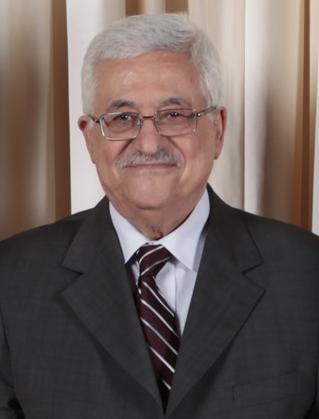Egyptian President Morsi is the one man that Hamas is looking toward to start a war with Israel, and that is why there are rockets flying back and forth.
 While there has been very little news of formal progress between the Israelis and the Palestinians, until this week there had been modest informal improvements day to day in the West Bank, at least. Why now, then, did Hamas decide to escalate in southern Israel? The answer can be found in the protests occurring in Egypt, and the new government of President Mohamed Morsi, who is aligned through the Muslim Brotherhood with Hamas.
While there has been very little news of formal progress between the Israelis and the Palestinians, until this week there had been modest informal improvements day to day in the West Bank, at least. Why now, then, did Hamas decide to escalate in southern Israel? The answer can be found in the protests occurring in Egypt, and the new government of President Mohamed Morsi, who is aligned through the Muslim Brotherhood with Hamas.
 By escalating the violence, Hamas hopes to elicit a reaction from Israel that would stoke people in Egypt to press Mr. Morsi to abrogate Egypt’s treaty with Israel. Mr. Morsi previously signaled that the treaty is not inviolate, by stating that the Camp David Accords had envisioned a permanent solution long ago.
By escalating the violence, Hamas hopes to elicit a reaction from Israel that would stoke people in Egypt to press Mr. Morsi to abrogate Egypt’s treaty with Israel. Mr. Morsi previously signaled that the treaty is not inviolate, by stating that the Camp David Accords had envisioned a permanent solution long ago.
 This fits a pattern that the Palestinians have been attempting for the last year: rather than come back to the table, they would prefer to see international pressure exerted on Israel, and the more the better. Firing rockets toward Jerusalem has therefore pushed the government of Prime Minister Benjamin Netanyahu into a corner: the Israeli response against such attacks has always been robust, if not aggressive. If the the rocket attacks into Gaza that demonstrate this point have caused as many Egyptians to protest, imagine what the result of a ground offensive would be.
This fits a pattern that the Palestinians have been attempting for the last year: rather than come back to the table, they would prefer to see international pressure exerted on Israel, and the more the better. Firing rockets toward Jerusalem has therefore pushed the government of Prime Minister Benjamin Netanyahu into a corner: the Israeli response against such attacks has always been robust, if not aggressive. If the the rocket attacks into Gaza that demonstrate this point have caused as many Egyptians to protest, imagine what the result of a ground offensive would be.
 In the meantime, Palestinian Authority President Mahmoud Abbas has had to cut short his world tour, where he has pushed the countries to elevate the status of Palestine to observer state. This has many implications in both political terms and International legal terms, and would represent an attempt at an end run around a bilateral solution. It would provide Palestinians legal claims to sovereignty of their territory. Those claims would do the Palestinians little good in the short term, as Israeli tanks roll across Gaza, and all for the veiled hope that they will somehow come out better (and Israelis worse) thanks to Egypt coming into a war on their side, perhaps bringing others with them.
In the meantime, Palestinian Authority President Mahmoud Abbas has had to cut short his world tour, where he has pushed the countries to elevate the status of Palestine to observer state. This has many implications in both political terms and International legal terms, and would represent an attempt at an end run around a bilateral solution. It would provide Palestinians legal claims to sovereignty of their territory. Those claims would do the Palestinians little good in the short term, as Israeli tanks roll across Gaza, and all for the veiled hope that they will somehow come out better (and Israelis worse) thanks to Egypt coming into a war on their side, perhaps bringing others with them.
It all hinges on how President Morsi responds to this crisis, and there is reason to be concerned that he will not respond well. Either the Palestinians have grossly misread his support, or he has failed to communicate his position clearly to them, or he is willing to go to war for them in the right conditions. The first two possibilities would seem naïve. If Israel is perceived by enough people to have not responded proportionally, the matter will escalate beyond its borders. This is what Hamas is hoping for. It is a very high stakes game, that involves live ammo and the deaths of both Palestinians and Israelis. Americans who think this won’t involve our military are being equally naïve.
Benjamin Netanyahu now joins the ranks of prime ministers of Israel who have advocated strength and ended up seeing Israelis attacked. Good one, Bibi.
 I’ve recently read two books relating to World War II. The first was Ike: An American Hero, a biography of Dwight D. Eisenhower by Michael Korda, which is a near idolizing tale of Ike, in which the man can seemingly do no wrong. The other is saga of Winston Churchill’s life, starting from the day he becomes Prime Minister in 1940. This is the third of The Last Lion trilogy by William Manchester. These are two very different perspectives on how WWII was won.
I’ve recently read two books relating to World War II. The first was Ike: An American Hero, a biography of Dwight D. Eisenhower by Michael Korda, which is a near idolizing tale of Ike, in which the man can seemingly do no wrong. The other is saga of Winston Churchill’s life, starting from the day he becomes Prime Minister in 1940. This is the third of The Last Lion trilogy by William Manchester. These are two very different perspectives on how WWII was won. On the other side, Korda points out that Eisenhower took his strategy directly from Grant, which was to destroy the enemy’s ability to make war. That necessitated the destruction of all German armies the hard way, under the belief that so long as they had armies that could fight, they would fight.
On the other side, Korda points out that Eisenhower took his strategy directly from Grant, which was to destroy the enemy’s ability to make war. That necessitated the destruction of all German armies the hard way, under the belief that so long as they had armies that could fight, they would fight. While there has been very little news of formal progress between the Israelis and the Palestinians, until this week there had been modest informal improvements day to day in the West Bank, at least. Why now, then, did Hamas decide to escalate in southern Israel? The answer can be found in the protests occurring in Egypt, and the new government of
While there has been very little news of formal progress between the Israelis and the Palestinians, until this week there had been modest informal improvements day to day in the West Bank, at least. Why now, then, did Hamas decide to escalate in southern Israel? The answer can be found in the protests occurring in Egypt, and the new government of  By escalating the violence, Hamas hopes to elicit a reaction from Israel that would stoke people in Egypt to press Mr. Morsi to abrogate
By escalating the violence, Hamas hopes to elicit a reaction from Israel that would stoke people in Egypt to press Mr. Morsi to abrogate  This fits a pattern that the Palestinians have been attempting for the last year: rather than come back to the table, they would prefer to see international pressure exerted on Israel, and the more the better. Firing rockets toward Jerusalem has therefore pushed the government of
This fits a pattern that the Palestinians have been attempting for the last year: rather than come back to the table, they would prefer to see international pressure exerted on Israel, and the more the better. Firing rockets toward Jerusalem has therefore pushed the government of  In the meantime, Palestinian Authority President Mahmoud Abbas has had to cut short his world tour, where he has pushed the countries to elevate the status of Palestine to observer state. This has many implications in both political terms and International legal terms, and would represent an attempt at an end run around a bilateral solution. It would provide Palestinians legal claims to sovereignty of their territory. Those claims would do the Palestinians little good in the short term, as Israeli tanks roll across Gaza, and all for the veiled hope that they will somehow come out better (and Israelis worse) thanks to Egypt coming into a war on their side, perhaps bringing others with them.
In the meantime, Palestinian Authority President Mahmoud Abbas has had to cut short his world tour, where he has pushed the countries to elevate the status of Palestine to observer state. This has many implications in both political terms and International legal terms, and would represent an attempt at an end run around a bilateral solution. It would provide Palestinians legal claims to sovereignty of their territory. Those claims would do the Palestinians little good in the short term, as Israeli tanks roll across Gaza, and all for the veiled hope that they will somehow come out better (and Israelis worse) thanks to Egypt coming into a war on their side, perhaps bringing others with them.